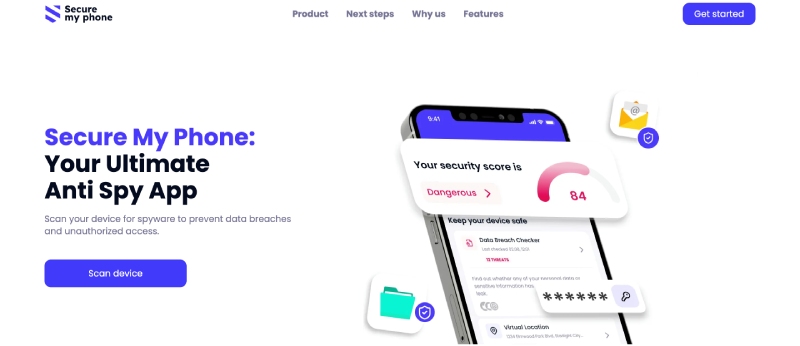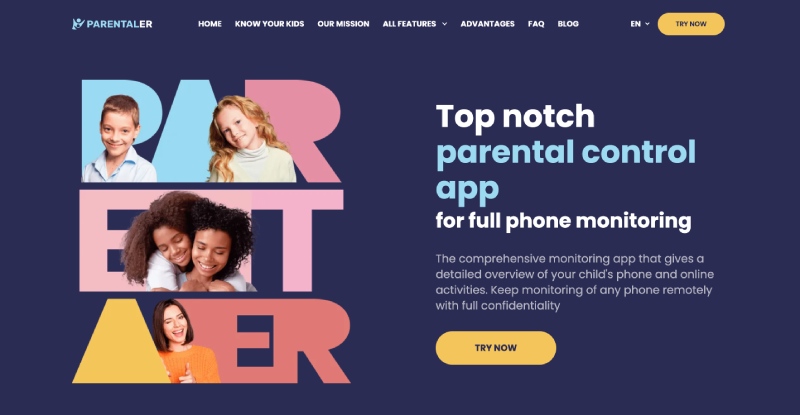

The American Academy of Paediatrics recommends no screen time for children under 2 years and limited 1:1 or supervised screen time for children and youth over 2 years. Also, according to research, 53% of children by the age of eleven will have seen sexually inappropriate content.
So, should kids have phones? The answer is balance. The decision to provide your child with a phone should include parental controls, conversations regarding safe choices for screen usage, and rules of appropriate screen usage. This guide includes pros, cons, and safety tips to help you make an informed choice.
Are Phones Good for Kids? Reasons Why Children Need Them
Today, smartphones aren’t just for watching videos or playing games; if used correctly, they can become very useful tools for children. So, there are many other reasons that make having a phone worthwhile.
1. Quick and Constant Communication With Parents
One of the strongest arguments in favor of kids having phones is the direct access to parents in emergencies or other instances. Having a phone relieves some of the anxiety involved in situations where there are simply more changes to after-school plans, the child is lost, or the child needs immediate assistance.
A Pew Research study showed that 84% of parents reported that safety was a large factor in putting a phone in their child’s hands. From the very real point of view of emergencies at school (lockdowns) and attempting to practice getting home without missing the bus, a connected device is necessary for communication. Some schools even advocate for phones in practice safety drills.
2. Study Assistance
Intentionally used, smart devices, like cell phones, can be extremely effective learning tools. After all, some learning apps (like Khan Academy, Photomath, or Duolingo) can help with schoolwork, as can some online learning (e.g., Google Classroom), which helps organize learning assignments.
Research Gate reported that around 90% of students used devices to learn from home during the pandemic. Research apps, digital flashcards, and AI tutors (like ChatGPT for homework help) for older children can provide backup support for learning and studying.
At many schools, learning is becoming a BYOD (bring your own device) world, which is making cell phones essential for participating in classes. So, should kids have cell phones? The key is balancing learning benefits with screen time limits to avoid distraction.
3. Socialization
For many children, phones are lifelines to friendships. Specifically, teens are dependent on texting and apps like Snapchat to stay socially connected. A 2023 Common Sense Media report found that 80% of teens say social media helps them feel more connected.
For more socially shy children, texting may be a way to help reduce social anxieties. Family group chats or video chats with someone who lives far away, can reinforce that bond. As the American Academy of Pediatrics (AAP) suggests, co-view content and discuss what you expect with your children regarding certain online behaviors. The goal is to help foster socialization, with online social media use limited only as a supplement.
4. A Chance to Relax With Games
Are phones good for kids? Research shows that playing games that require strategic thinking or running games like Minecraft can enhance problem-solving skills and creativity. The American Psychological Association has recognized moderate video game play as a healthy way for kids to cope with stress.
- Game-type apps like Pokémon GO teach kids to be active while, in essence, playing video games.
There are ways to put controls around gaming (e.g., you can’t game until after your homework is done), and parents can use apps (e.g., the Google Family Link app) to control gaming.
Reasons Why Kids Don’t Need Cell Phones
Are phones good for kids? Smartphones have positive aspects, but there are serious downsides. Experts advised that before giving kids smartphones, take a moment to think through the implications – here is why:
1. Access to Adult Content
One of the greatest concerns over kids having phones is the potential to stumble upon inappropriate adult content while online. A report by Common Sense Media (2023), found that 56% of children ages 8-12 have seen pornography online, usually not knowingly.
- Within minutes of a first-time user logging onto TikTok, they will encounter violent or sexual content, says The New York Times in 2023.
The children faced adult content via ads or indirect links. Parents and guardians may take comfort in parental controls to safeguard their kids. However, where there is a will, kids will find a way. A Wall Street Journal article confirmed that 70% of teens indicate they are able to get around the basic restrictions set by parents or guardians through a variety of methods.
2. Risk of Unwanted Communication
The National Center for Missing and Exploited Children states that since 2019, the number of cases involving online predators has increased by 300%. Most contact takes place through gaming applications or social media platforms.
According to Pew Research in 2024, 1 in 3 students have experienced cyberbullying, which in the most extreme cases has led to depression and school avoidance. Moreover, even if the platform appears safe, there is always some risk associated with it.
3. Possible Health Risks
New studies show there are troubling physical implications of early phone usage. The American Optometric Association has found a 59% increase in myopia in children, directly correlated to screen time and kids having phones.
Blue light is causing melatonin levels to decrease, which is contributing to sleeplessness. Kids who are using their devices before sleep are taking an average of 30 minutes longer to fall asleep (Sleep Foundation, 2024). As for pediatricians, they are also seeing a rise in “text neck” and repetitive strain injury from screen use in children as young as 8 years old.
4. Deterioration of Behavior and Attentiveness
Neuroscientists believe that all of the notifications are rewiring the developing brain to be distracted, and a study published by Stanford University suggested that the most frequent users were 40% worse at switching tasks.
Behavior specialists are seeing increases in impulsivity and frustration tolerance when the device is taken away. Evidence published in the Journal of Pediatrics reported that children who had unlimited access to devices had 30% less exploratory play and initiative in problem-solving.
How to Ensure Your Child’s Safe Use of a Smartphone?
Should kids have cell phones? Although smartphones have risks, there are ways that parents can take action to ensure that their children are using them in a healthy way. If you have a few tools and an open dialogue, – it allows your child to use technology responsibly.
1. Set Up Parentaler
Parentaler is an all-in-one parental control app that helps parents manage their child’s smartphone usage. Parentaler features include:
- Screen use limits. Set daily limits on apps and games to avoid excessive use
- Content restrictions. Block inappropriate websites and apps depending on the responsible age settings
- Location monitoring. Track the exact location of your child.
- App monitoring. Receive notifications when your child downloads apps or accesses restricted content
- Schedule controls. Temporarily turn off all apps when doing homework or at bedtime.
Parentaler’s easy-to-navigate dashboard allows parents to change restrictions based on their child’s maturity level. In contrast to the basic phone settings, it gives a more in-depth view of usage patterns to enable families to implement responsible screen use habits.
2. Teach Cybersecurity with Secure My Phone

Secure My Phone is an application that offers security tools to users, and help with “should kids have phones” – they educate kids regarding online safe practices. Below are the main features:
- Phishing protection. This feature notifies users whenever they click on a possible suspicious link in a messenger or email.
- Privacy scanner. Reports applications that may cause users to offer up way too much personal data.
- Wi-Fi security. This warns of a public network that is not secure and could enable sensitive data access.
- Anti-theft tools. Allow a user to lock or wipe a device if lost.
- Bullying detection. Flags messages and social media messages that contain aggressive language.
3. Talk Openly About the Risks of Phone Use

Technology restrictions will not support keeping kids safe alone; kids need ongoing dialogues. Experts recommend:
- Talk about online predators. Talk about the potential for strangers to impersonate kids, as well as what information is never okay to share.
- Talk about cyberbullying. Talk about what to do if they are, or another kid is, bullied online.
- Talk about rules. Agree on phone-free times (meals, bedtime), and consequences for breaking the rules.
- Model good behavior. Limit your own phone use at home, as appropriate, so your kids see responsible phone use.
Children with parents who are talking to them about their online digital risk are less likely to engage in behaviors that they and/or others may consider unsafe. When parents check on their children regularly, it establishes a rhythm of these discussions, normalizes them, and helps to establish trust.
Conclusion: For the Right Choice About Kids and Phones
So, when better should kids have phones is a difficult decision, and it is important to weigh the benefits and safety. Smartphones can facilitate your child’s connectivity and learning opportunities, but they can also expose them to online danger, health risks, and behavioral restrictions.
There is no “right age” to get a phone—it is based on your child’s development and your family’s values. But if you are able to develop technological protections along with constant limit setting, it’s possible to engage your child safely and responsibly in the digital space.




